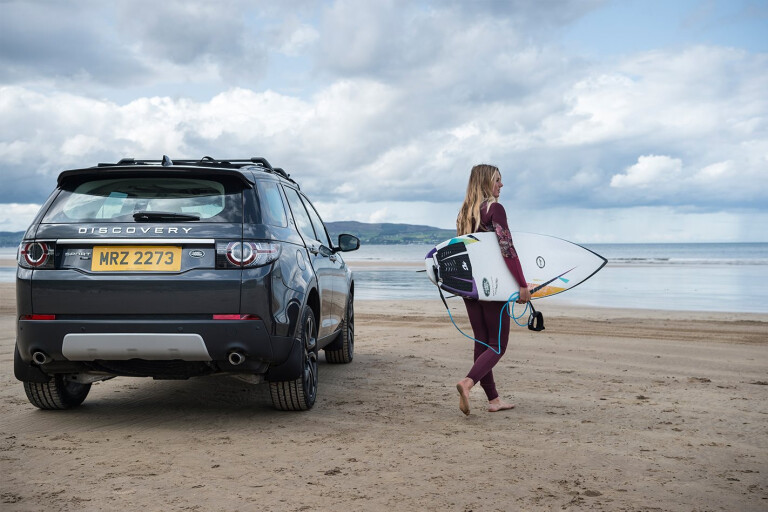
Jaguar Land Rover and SkunkWorks Surf Co have partnered in an initiative to build surfboards from the car manufacturer’s polyurethane plastic used in its early design clay models.
JLR’s ‘Waste to Wave’ project takes the polyurethane foams that sits beneath clay models and repurposes it as part of the company’s commitment to send no waste to landfill by 2020.
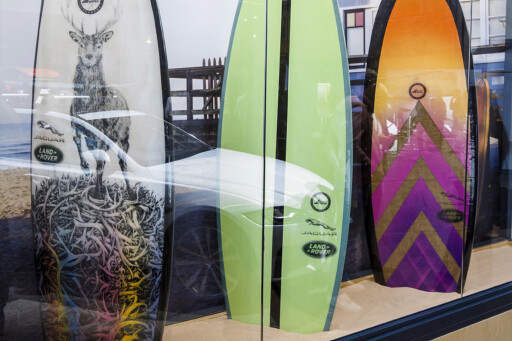
The clay models actually consist of a thin skin of heavy and malleable clay that’s laid over a skeleton of polyurethane. While the clay is easily reused by the styling department, the polymer superstructures are usually binned. Now, JLR is slicing the material into blocks and sending it to Northern Ireland where SkunkWorks uses it to build custom surfboards.
The very first surfboard was created from a Discovery Sport clay model that was broken down in June 2017. Wheels spoke to SkunkWorks’ Ashley Douglas, who was displaying the first board concepts at Jaguar’s Tech Fest in London. “We’ve created a range of high-end custom boards. With the denser foams we can build heavier boards for big wave surfing and the lighter PU materials are used for longboards and stand-up paddleboards,” he said. “We can tune the characteristics of each board with carbon-fibre stringers exactly to clients’ needs.”
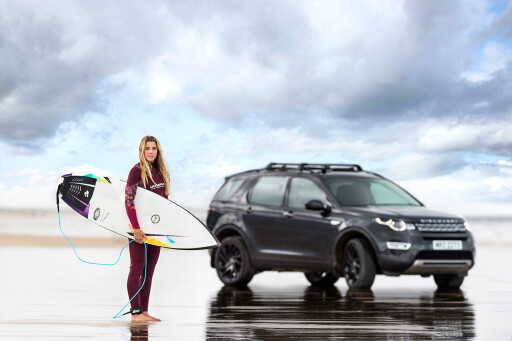
Co-founder, Ricky Martin saw the opportunity as a great source of building materials. “It’s actually pretty hard for us to source materials. There are only a handful of companies that supply it, so we jumped at the chance to work with JLR in reusing polyurethane.”
“It saves around 20 tonnes per year from going to landfill and we can make almost a thousand boards from that,” he explained.
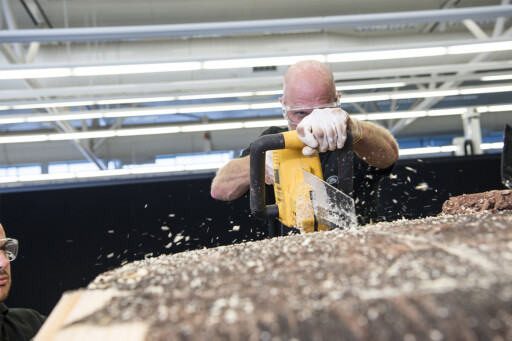
A visit to JLR’s engine plant in Wolverhampton highlighted other commitments to recycling. More than 300,000 tonnes of recycled aluminium is used per year to manufacture the latest vehicles produced across the production network. The factory features state of the art aluminium swarf recovery processes, a smart climate control system that uses no air conditioning, and has a closed-loop recycling process for any aluminium defect parts.
50 percent of the aluminium used in the F-Pace is recycled and as a result of its recycling initiative, in 2016, the press shop’s aluminium waste was repurposed to provide enough material (50,000 tonnes) to build 200,000 Jaguar XE body shells. That in turn prevented more than half a million tonnes of carbon dioxide from being released to the atmosphere.
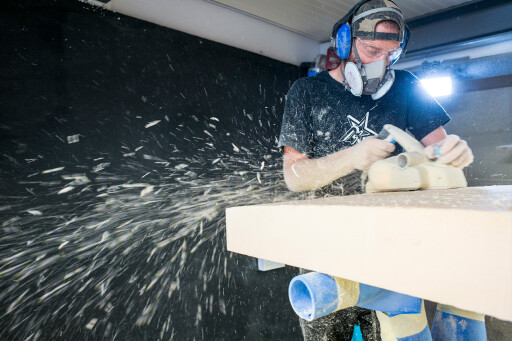
We’ve become accustomed to ‘greenwash’ from some car manufacturers. Of course, it’s important for Jaguar Land Rover to be seen to be doing the right thing, but there’s a genuine commitment to think laterally and innovate in recycling and repurposing. And a board that helped create the Disco Sport? That has to be a pretty cool thing.
Custom boards range from $1300-$3250 dependent on build/artwork requirements etc. For more details contact www.skunkworkssurf.co.uk



COMMENTS